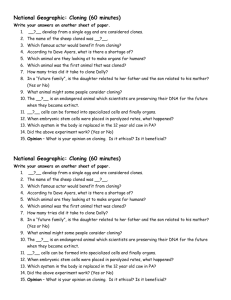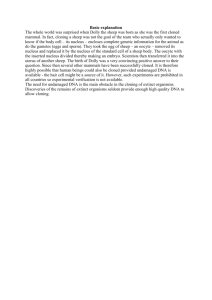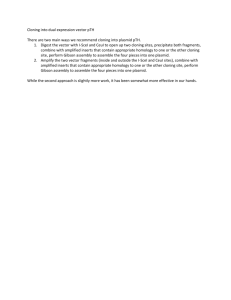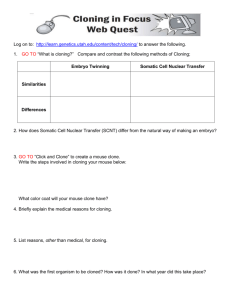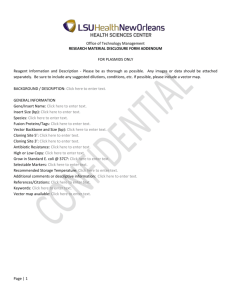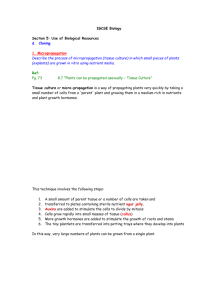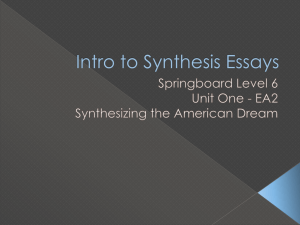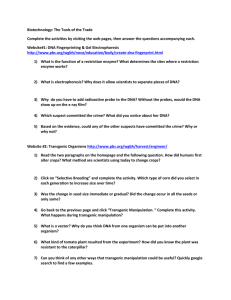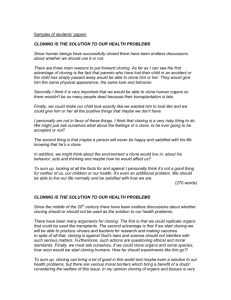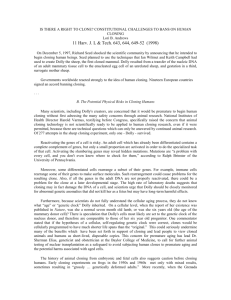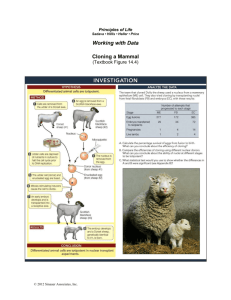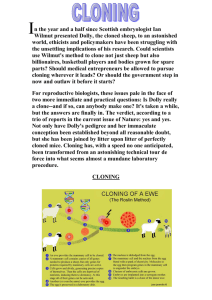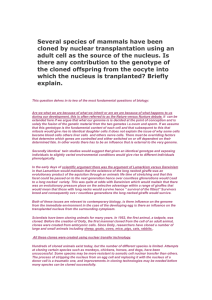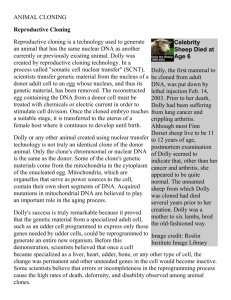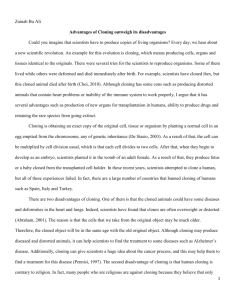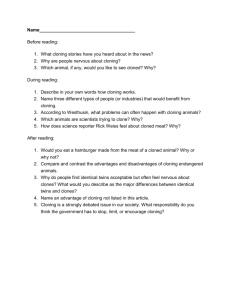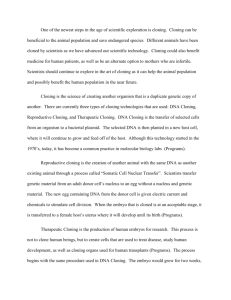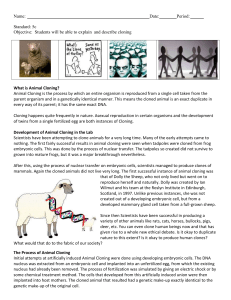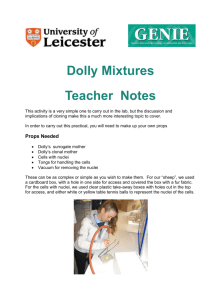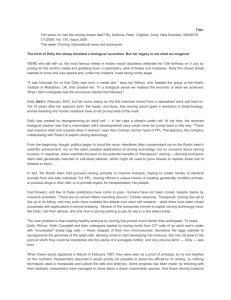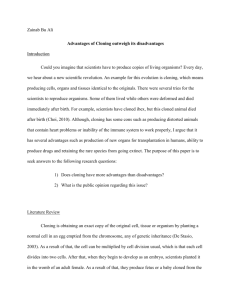Lesson 5 cloning student worksheet
advertisement
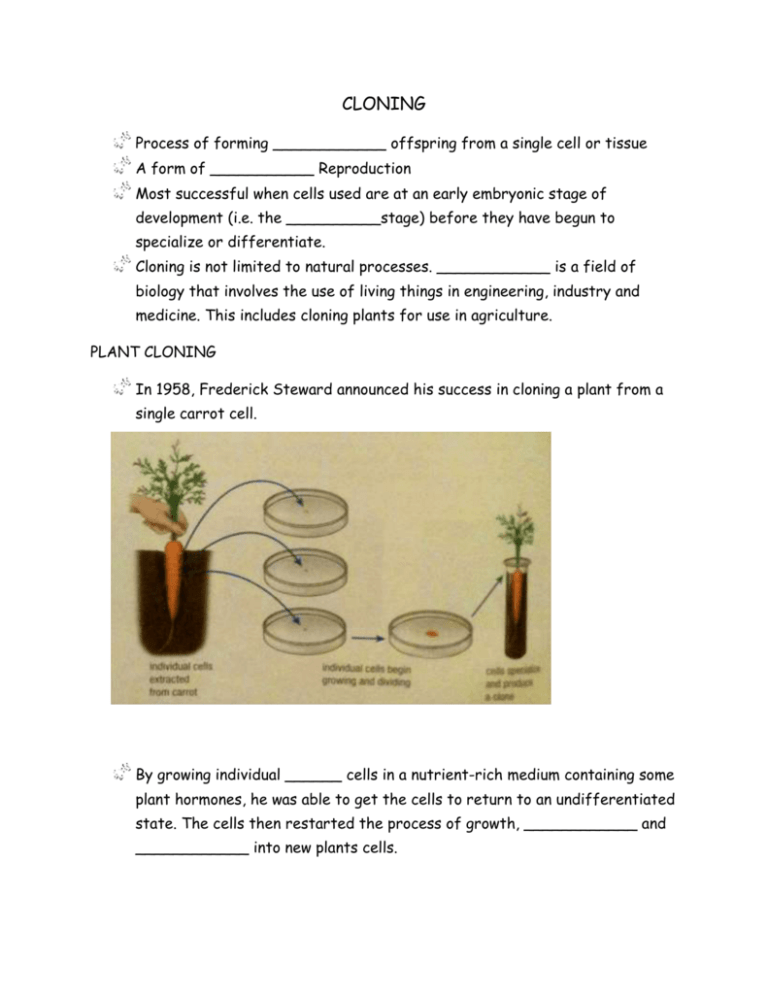
CLONING Process of forming ____________ offspring from a single cell or tissue A form of ___________ Reproduction Most successful when cells used are at an early embryonic stage of development (i.e. the __________stage) before they have begun to specialize or differentiate. Cloning is not limited to natural processes. ____________ is a field of biology that involves the use of living things in engineering, industry and medicine. This includes cloning plants for use in agriculture. PLANT CLONING In 1958, Frederick Steward announced his success in cloning a plant from a single carrot cell. By growing individual ______ cells in a nutrient-rich medium containing some plant hormones, he was able to get the cells to return to an undifferentiated state. The cells then restarted the process of growth, ____________ and ____________ into new plants cells. ANIMAL CLONES An unfertilized egg cell is ________________ The nucleus from a fertilized cell (embryo) is extrated in the _________ stage and inserted into the enucleated cell. The cell undergoes _________ and in many cases becomes a clone of the nucleus donor. On July 5th, 1996, the world’s most famous sheep, _________, was born. Dolly was the first mammal cloned from an adult body cell. Dolly was the only successful clone out of _____ attempts. Today many more species have been cloned from adults: _____, cows, pigs, dogs, cats, mice, ________, horses, and __________. There are many problems still with cloned individuals such as; they do not live as long as normal individuals and often _______ from a variety of health complications. Dolly died prematurely of _______________ more common in older sheep. She also exhibited other signs of premature aging, including arthritis. In order for cloning to be successful, extraction of the fertilized nucleus must take place prior to cell specialization. It is believed that specialized cells have switched off the genetic information that controls cell division. CLONING QUESTIONS 1. What is selective breeding? Artificial insemination? Embryo transfer? 2. Explain In vitro fertilization? 3. Explain the steps in cloning a gene in bacteria. Also define recombinant DNA. 4. Explain the difference between therapeutic cloning and reproductive cloning. 5. What is a stem cell? List the three difference sources stem cells have been used for. 6. What are transgenic organisms? 7. Identify the benefits of cloning plants. 8. What are the applications of transgenic animals? 9. Explain how the use of cloned animals can aid in drug research. 10. Explain why cloning and asexual reproduction are considered to be the same thing. 11. Identify one drawback of cloning livestock. 12. Why might it be advantageous to clone a prize animal rather than simply breeding it with other individuals? What might be the disadvantages? 13. What are your thoughts on cloning humans? Should it be done? What are the advantages and disadvantages?
